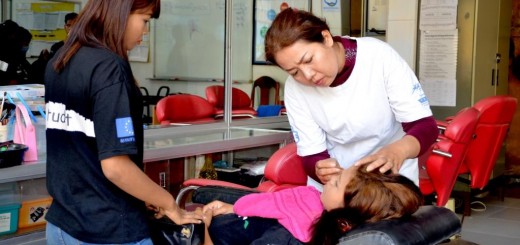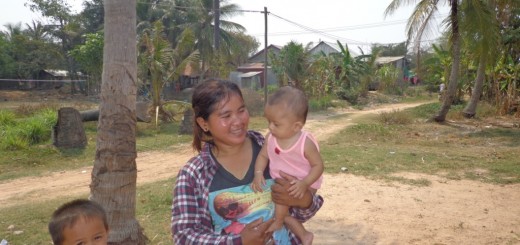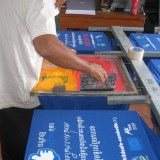Combating Labor Trafficking – A Holistic Approach To A Major Issue
It’s ‘Human Trafficking Awareness Month’, and for many the images conjured by the phrase ‘Human Trafficking’ will be linked to Sex Trafficking, as invariably mass media coverage focuses particularly on the sensational or salacious aspects of this form of modern-day slavery from which traffickers profit from the control and exploitation of others. However, this malaise takes many faces, and last week our team in Phnom Penh was involved in a case which illustrates this. Mith Samlanh Child Protection Officer Seny was put onto the case of a young woman from the Cambodian provinces who had traveled to China for work, but who was repatriated almost immediately upon arrival by the Chinese airport authorities as she lacked the necessary paperwork to enter the country. The victim was 21 years old, from Kampot province and had been coerced by a group of traffickers into paying them for arranging work for her in China. Among the few possessions the young woman had with her was a suitcase filled with Cambodian food; something that she hoped would make her first few weeks as a stranger in a strange land more bearable.
The confused and frightened victim was placed under the care of Mith Samlanh. The national anti-trafficking police investigated her story with the support of Mith Samlanh and identified and arrested the three alleged traffickers, two females and one male, who are currently in police custody awaiting trial. Mith Samlanh meanwhile arranged for the young woman to be accommodated and to get a place on one of their vocational training programs. These are designed to provide skills which will lead to employment in the labor market in Cambodia, reducing the risk of trafficking to vulnerable populations.

(top) One of the alleged traffickers is taken into custody. (above) The three suspects arrested by police.
Traffickers often prey on people who are hoping for a better life. Those who lack employment opportunities are relatively easily conned by traffickers into paying for the guarantee of a job in a foreign country, but all too often the outcome is grim for the victim – the intended job never materializes, or they find themselves practically slaves, paying back huge debts with no support mechanisms to help them escape from their situation. There are an estimated 27 million slaves worldwide, and more than 24 million of them, or 89 percent, live in Southeast Asia. Labor trafficking is a massive issue across Southeast Asia, but is often overshadowed in the media by Sex Trafficking. We must work not only to raise awareness of the horrific realities of all trafficking, but also to create approaches which will not only help to eradicate all forms of trafficking, but enable those most vulnerable to it to lead full and productive lives. At Friends our education, training and income generation projects seek to do just that, removing risk factors and building futures safely, alongside our ChildSafe Network which adds the important layer of a community-driven protection initiative that can help educate young people, their families and communities on safe migration practices. Trafficking is a global problem, but no problem is insurmountable. It can be tackled using holistic approaches such as these, and enlisting all stakeholders in the process – Together, building futures.







